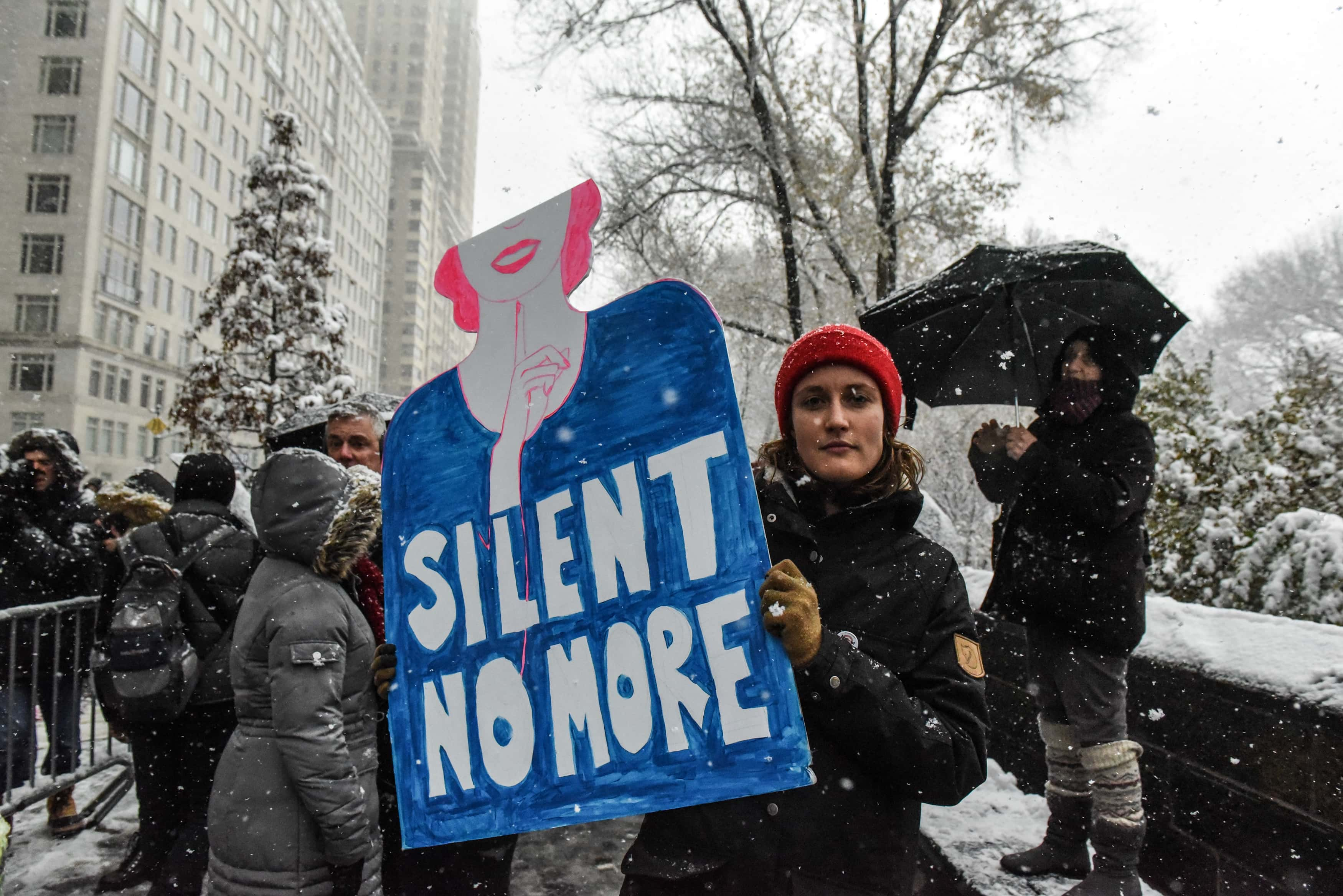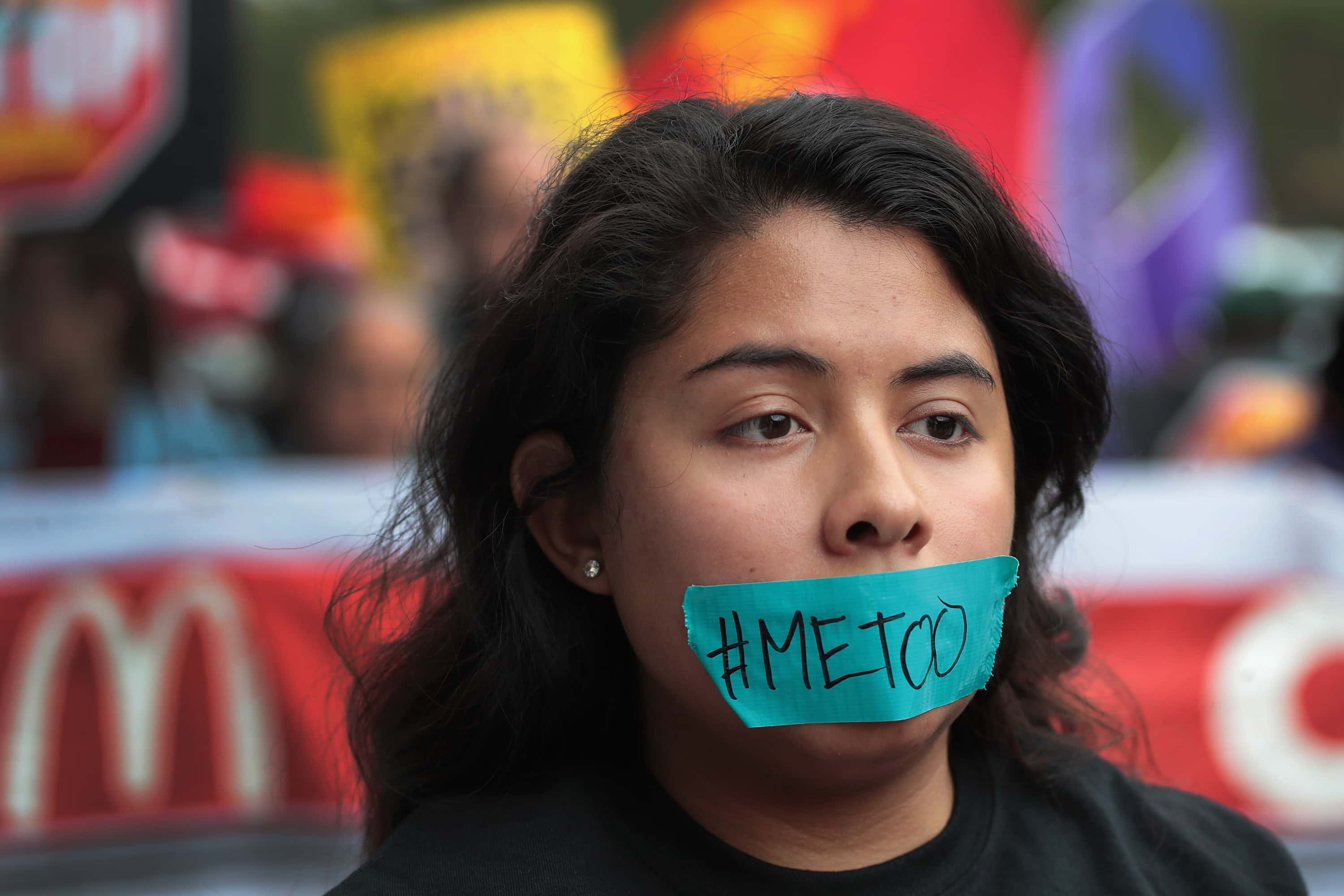Time’s Up slammed for asking volunteers to sign secrecy pledges as health care members quit over harassment row

Nation’s top anti-sexual harassment advocacy group Time’s Up is being criticized for allegedly asking its volunteers to sign an agreement limiting their ability to speak freely about the organization, including “a pledge not to disparage the group, its employees, or its ‘community members’”, according to The Daily Beast. The publication reportedly obtained a copy of the document presented to members of at least one committee, shortly after many from the health care subsidiary quit over harassment scandal.
A source familiar with the report told the publication that the agreement was first circulated last year, and the volunteers were reportedly not prohibited from attending committee meetings if they refuse to sign it. A spokesperson for Time’s Up said, it “intended solely to protect survivors, not to silence anyone”.
READ MORE

“The document, which was drafted and circulated last year, has one purpose and one purpose only — to make sure that survivors who speak up during TIME’S UP meetings are entitled to confidentiality, so that they can tell their stories in a safe space and not worry that what they say will be repeated by others without their consent,” the statement read.
However, Monica McLemore, one of the founding members of the health-care group and former adviser to the Time’s Up global leadership board, called the document “surprising and disappointing”. “I can’t believe an organization that has railed against actresses having to sign non-disclosure agreements would then turn around and ask people who were affiliated with the organization... to sign away their capacity to be critical. It does not sit right with me,” she added.
McLemore further noted, “To ask someone to sign a statement agreeing not to disparage the organization, to me it smells of the same tactics we were trying to end.” According to reports, the document requires the volunteers to sign onto 11 “guiding policies”, including that they’ll not “disparage TIME’S UP, its employees or its community members”. They must agree to “keep all non-public information about TIME’S UP’s activities and its community members confidential” and “not disclose, use, or publish any of TIME’S UP’s confidential and/or privileged information without approval”.

Earlier, members of Time’s Up Healthcare, its subsidiary dealing with harassment and discrimination in the medical setting, criticized the group for overlooking a workplace sexual harassment complaint against one of its founding members. The members of the committee reportedly told the publication that “their suggestions on how to handle the situation were railroaded by Time's Up leadership”. As a result, nearly a third of 50 members quit.
Similar to McLemore, Douglas Wigdor, the attorney who has represented multiple victims of harassment who are bound by NDAs noted that the non-disparagement clause was the most concerning bit about the agreement. “I am genuinely surprised that Times Up, an organization that encourages victims to speak up rather than suffer in silence, would require its own workers to sign a non-disparagement agreement. This, along with one of its founders advocating mandatory arbitration, seem to run counter to its otherwise laudable mission,” he noted.
Meanwhile, one of the volunteers told the publication that the non-disparagement agreement was an example of the MeToo advocacy group’s “extreme hypocrisy”. “It's an organization full of volunteers, who are mostly survivors, so really, they are forcing survivors to sign NDAs. What makes them any different than the people they claim to be protecting survivors from?” she said. “This is why so many of us left. We realized they were not just not doing enough, they were actually becoming the very thing we were trying to change,” she further added.










